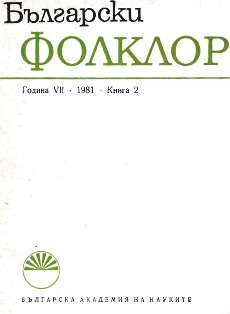Народният мит в драмата на Петко Тодоров „Зидари”
The Folk Myth in Petko Ju. Todorov’s Play „The Masons”
Author(s): Henryka CzajkaSubject(s): Anthropology
Published by: Институт за етнология и фолклористика с Етнографски музей при БАН
Summary/Abstract: The author considers the plays of P. Ju. Todorov as a turning point in Bulgarian dramaturgy. As she notes in the article, the writer turned his attention towards the modern conceptions of the West-European playwrights of his time, but he drew the themes for his plays out of the relations in his own country. „The Masons” is built up around the conflict between the person and society, the same dramaturgical conflict as the one in Ibsen, but the relationships between the characters are grounded on the Bulgarian man’s pagan notions enriched by the Christian religion. The building of the church, which is in the centre of the play is necessary in accordance with the peasants’ religious beliefs, while the immuring of an alive person in the building so that it would be solid enough appears an inevitable necessity from the viewpoint of their pagan ideas, rooted deep in their subconsciousness. The introduction of the folk myth adds a different character to the play – the writer carries the emphasis from the way of life and the customs on to metaphysics, the real world in the play being subordinated to the irrational and the tragedy coming from metaphysics. P. Ju. Todorov penetrates also the moral sphere and at this point a change occurs in the play – the accent is transferred on to the mentality of the characters. The myth existing in the subconsciousness of the milieu comes true because such are the requirements of the peasant community. This, however, does not free the hero of the sense of guilt – the person remains burdened by this feeling and cannot cope with it. Hence the tragic dénouement of the conflict in the play.
Journal: Български фолклор
- Issue Year: VII/1981
- Issue No: 2
- Page Range: 39-43
- Page Count: 5
- Language: Bulgarian
- Content File-PDF

